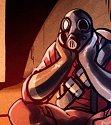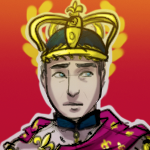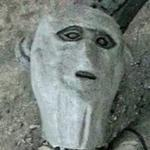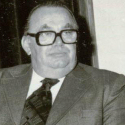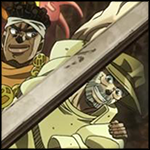|
 What is this? I'm going to be playing Crusader Kings 2 as the nation of Novgorod, starting at the earliest date possible, 769 CE. If I don't totally beef it, I'll hopefully be converting to Europa Universalis IV and beyond. Oh and there's going to be some audience participation, at some point. Crusader Kings? Europa Universalis? Converting? What are you talking about? Crusader Kings 2, the game I'll be playing, is part of a long line of grand strategy games developed and published by Paradox Interactive. In theory, you can start playing in the Middle Ages and eventually bring your nation all the way up to World War II. What, exactly, is Novgorod? Novgorod is a city in Russia (though it was renamed to Veliky Novgorod in 1999) that lent its name to a principality, and later a republic, that rose to prominence during the Middle Ages. At its height, it stretched from the Baltic Sea to the northern Ural Mountains and controlled a significant portion of trade in both the Baltic and in Russia. Its existence was brought to an end in 1478 when Ivan the Great of Moscow sent his army into the city and destroyed Novgorod's veche, library, and archives. We're going to try and do better than that. You mentioned audience participation? Yes, I did! Basically, at various points in the LP I'll be asking for the readers to vote on some stuff, which will usually determine the direction of Novgorod (and possibly the world) will go in. There probably won't be too much audience participation in the Crusader Kings 2 portion of the LP, but at some point I'm going to have you guys vote on what type of government Novgorod will have (feudal monarchy or merchant republic) and the official religion of Novgorod (probably a choice between the Christianity, Islam, and Judaism, but if, for some reason, something wacky like Hinduism spreads to the area, I'll also include it as an option). Hold up, I'm a giant CK2 nerd and Novgorod can't be a merchant republic! You're full of poo poo! I've modded the game so that major rivers count as coastal provinces for the purposes of determining whether a province qualifies as a valid port for merchant republics. Hey why are you gonna let us vote on religion? Isn't that a little weird? There's numerous stories of pagan khans and kings sending out envoys to the various religions of Europe and the Middle East to determine which was "the best" religion. The steppe nomads known as the Khazars famously converted to Judaism using this method, and there's even some tales of various Russian princes emulating this practice, though they always ended picking Orthodoxy for political and economic reasons. You guys will have not such constraints though, because the world may look very different by the time we finally do decide on our shiny new religion. Why are you playing Novgorod? I dunno, just seemed like the fun thing to do. Oh and I like Russia, I guess. Why'd you call the LP Lord Novgorod the Great? That's a stupid name. There's this really excellent history of Novgorod called The Chronicle of Novgorod by Robert Mitchell and Nevill Forbes, and in it they discuss a nickname Novgorod picked up: Gospodin Velikii Novgorod, which they translate as Lord Novgorod the Great. I thought it sounded cool and also I like their book. So, without further ado, please enjoy this Let's Play. Table of Contents
Chapter 2: The Foolish Chief Chapter 3: A Breath of Fresh Air Chapter 4: Greeks Bearing Gifts Chapter 5: Growth and Prosperity Chapter 6: The Founder Chapter 7: The Absent Chief Chapter 8: Veni, Vidi, Veche Chapter 9: Friction Chapter 10: Rodislav Victorious Chapter 11: The Bad Years Chapter 12: Vae Victis Chapter 13: Unreasoning State of the World: 850 Chapter 14: Legend Chapter 15: The Old Chief Chapter 16: Reformation Chapter 17: Sword of Perun Chapter 18: Turmoil Chapter 19: Khram Yarilo Chapter 20: Tysyatsky Chapter 21: The Tyrant Chapter 22: The Second Sword State of the World: 900 Chapter 23: Bane of the Norse Chapter 24: Conquest Chapter 25: Instability Chapter 26: Res Publica Chapter 27: Son of Chernobog Chapter 28: Short-Lived Chapter 29: A Bad Start State of the World: 950 THE LESBIATHAN fucked around with this message at 22:19 on Dec 22, 2017 |
|
|
|

|
| # ? Apr 27, 2024 21:07 |
|
Chapter 1: A True Son of Perun The year is 769 AD, and nine years ago Rodislav Slovensky conquered the various Ilmenian tribes and declared himself their high chief. Rodislav is a cruel, lazy glutton, but also surprisingly honest. Educated by the priests and priestesses of the Slavic religion, he is aggressively average by all accounts, and certainly not high chief material.  Unable to fully administer his new chiefdom, Rodislav ceded control of the cities of Pskov and Luki to his brother and heir Zbignev. According to writings from the time, Zbignev was the exact opposite of his older brother; he was a kind and chaste man with a silver tongue, though some accounts claim he also possessed a proud streak and was known to be greedy.  Finally, a look at the Tribe of Ilmen. Ilmen has the distinct honor of being the northern most Slavic tribe, with all others to the south of it, along the Dniper River. To the north, west, and east lay realms ruled over by the fools of the Suomenusko faith; if Ilmen is to expand, it will most certainly be at the expense of these tribes.  High Chief Rodislav was completely uninterested in the running and administration of his new realm, instead leaving such matters to Zbignev. Instead, Rodislav was more interested in siring heirs, feasting, and winning glory for himself.   To solve the problem of lacking heirs, Rodislav arranged a marriage between himself and a Bohemian woman renowned for her genius (perhaps hoping she could help run his realm), as well as finding a bride for his brother. On January 10th the two brothers were married in Novgorod to their new wives. Of course, this called for a lavish week of feasting.   Being an extremely lazy man, Rodislav pledged himself to the worship of Perun, hoping the god of thunder would win his future battles for him. When the time came to offer a sacrifice to Perun, the priests offered Rodislav two choices: give up his eye or his wife. Considering he'd only just gotten married, Rodislav reluctantly gave up his eye.   Then, something surprising happened. Rodislav, the laziest man in all of Ilmen, found himself inspired. Some say that Perun truly touched him, while others claimed that Rodislav was still the lazy man he was before, just that matters of warfare came more naturally to him. Whatever the reason, there was a marked improvement in Rodislav's fighting skills, as well as his understanding of strategy and tactics.    Perhaps because Perun was pleased with him, Rodislav's injury fully healed in November. Following this, Zbignev suggested a war against the Ingrians to the west of Ilmen. After receiving promises from him that he'd do all the actual commanding, while Rodislav received all the glory, war was declared.   Zbignev made good on his promises to his brother, by leading the Ilmenian army to victory against the Ingrians at the Battle of Pskov. Soon after, the Ingrians sought peace with Rodislav, surrendering Ingriya to the Ilmenians. Rodislav, pleased with the success of his little war, holds a celebration for his commanders and troops.   Rodislav's celebration is cut short by some dire news: the Estonians were also at war with the Ingrians over Ingriya, citing some ancient claim on the land; as a result, it would seem that Ilmen was at war with the Estonians. Again, Zbignev promises his older brother that he would do all the actual fighting and leading, and leave the glory to Rodislav. Slightly drunk and immensely relieved to hear this, Rodislav continues his celebrations, leaving his brother to plan an offensive for the new war.  Exciting news soon reaches Rodislav's camp a few days later: his wife Ludmila is pregnant! Obviously, this means another round of feasting and celebration!  December turns into January and 770 becomes 771, and Zbignev announces he is ready to bring the fight to the Estonians. The Ilmenian army marches on the Estonian city of Narva, quickly capturing it, before turning back towards Ingriya to engage with the Estonian army there. The battle is quick and one-sided, as the hardened Ilmenian forces crush the Estonians. Soon after, a peace treaty is worked out by Zbignev; the Estonians renounce their claims on Ingriya for as long as Rodislav shall live. Rodislav promptly declares another feast to celebrate his great victory over the Estonians.    While celebrating his victory over the Estonians, a messenger arrives to tell him that his wife has given birth to a daughter named Premyslava. Rodislav, while disappointed, is pleased that his first child is healthy and happy. He decides to extend his celebrations a week longer.  Soon, though, Rodislav returns to Novgorod, expecting to be hailed as a great conqueror and true son of Perun. Instead, the nobles of Novgorod whisper that the victories over the Ingrians and Estonians were, in large part, thanks to Zbignev's planning and that all Rodislav did was sit back and bask in his brother's reflected glory. Rodislav refuses to even acknowledge these ridiculous rumors and promptly commissions a fine sword from a local blacksmith, against the advice of Zbignev and his steward.   So, at the start of 772, Ilmen finds itself deeply in debt, because of Rodislav's whims. Rodislav announces he has a solution: a grand raid against the Kryians to the south! Zbignev tries to convince him that the debt can be cleared in a few years at most, if Rodislav is willing to revise his budget and cut back on his celebrations and feasts, but Rodislav will hear none of it. Instead, he sends his steward to spread the word far and wide of his great raid; any man looking to make his fortune is invited to join him in Novgorod and be part of his war band. Soon, his steward's efforts bear fruit, as nearly 500 men flock to the city.  Perhaps to finally stop the rumors surrounding his time fighting the Ingrians and Estonians, Rodislav decides to lead the raid himself, instructing Zbignev to stay in Novgorod and run the day-to-day matters of the chiefdom, while he is out winning glory and fortune for himself. Just as he is about to leave Novgorod, he receives word that his wife is yet again pregnant. Because of this, Rodislav and his raiders spend an extra week in Novgorod, celebrating and feasting.  Finally, in October of 772, Rodislav enters Kryvia and begins sieging Vitebsk, intent on stealing the small city's gold and treasures. Barely a week into the siege, Rodislav receives a message from his brother Zbignev: a former Ingrian noble has gathered an army of peasants and has risen up against Ilmenian rule.  For perhaps the first time in his life, Rodislav marches off to war without his brother's guidance and planning. THE LESBIATHAN fucked around with this message at 21:18 on Oct 20, 2017 |
|
|
|
Can we get a gambling situation going where we bet on where this ends up? I've got ten that the Novgorodian settlement near OTL San Francisco is destroyed by the Aztecs in a nuclear strike about 1953.
|
|
|
|
In 1940 Zulu warriors with tanks will fend off the invading armies of the sentient dinosaur folk who were hidden in Australia until 1500, when Mayan explorers discovered the continent. I've got fifteen smackers riding on this, baby, don't gently caress this up for me. On a serious note, I'm always glad to see more Mega LPs 
|
|
|
|
I call for a week of feasting in celebration of this new LP.
|
|
|
|
Join the cult of satan.
|
|
|
|
Welcome to the club! This is an exciting start. I will follow this one with interest.
|
|
|
|
I always find playing with tribals more boring than playing with feudal rulers. How much land do you have to take before switching over to something more civilized?
|
|
|
|
I feel like we've got to make good on OTL's failures and go republic for sure.
|
|
|
|
Kanthulhu posted:I always find playing with tribals more boring than playing with feudal rulers. How much land do you have to take before switching over to something more civilized? Well, its more that I have to get tribal organization to max; once I hit it, I'll hold a vote to pick a religion and a government style.
|
|
|
|
Chapter 2: The Foolish Chief Rodislav is slow to break the siege of Vitebsk and march on Ingriya; he's worried that the adventurers that flocked to his banner would abandon him in droves if they knew they marched on a well prepared foe instead of a poorly defended city. So, for the next three months Rodislav and his raiders siege Vitebsk, despite the urging of his commanders and brother. On January 1st, Vitebsk surrenders and the Ilmenian raiders run rampant through the city, stealing anything that looks even vaguely valuable. Just as Rodislav is preparing for the customary feast to celebrate his great victory, news arrives: Ingriya has fallen to the rebels. Finally, Rodislav is forced into action and the Ilmenian army moves out of Vitebsk.   Perhaps letting the raiders loot Vitebsk was the right choice, because they remain with Rodislav even after learning they were headed to fight the Ingriyans. Battle is joined in March of 773, and after a brief clash, the rebel army is crushed and routed. During the fighting, Rodislav is caught in the fray and, much to his surprise, he enjoys the experience of leading an army; he even manages to learn something from the whole experience.  Peace is made and the leader of the revolt, an Ingriyan named Vootele, is taken back to Novgorod in chains, where he is executed. Rodislav also returns to the capital just in time for the birth of his second child: a daughter named Verkhoslava.  The Rodislav that returns to Novgorod is a different man; around court nobles whisper that finally being forced to stand on his own two feet has inspired him to take running the chiefdom seriously. Zbignev is dismissed from court and sent back to his holdings outside the city and Rodislav makes an effort to hear and judge disputes between peasants and nobles. Much to the surprise of everyone (Rodislav included) the rulings are just and fair. Furthermore, at the suggestion of his chief priest, Rodislav begins to study the language of the Byzantines with whom Ilmen trades with via the Dnieper River. Again, to the surprise of everyone, Rodislav appears to have some knack for languages.    Despite all the good Rodislav is doing for the realm, he still feels a general sense of unease, which he puts down to courtly matters lacking the excitement and thrill of battle. So, in September 773, Rodislav organizes another raiding force hoping to relieve this feeling.  For the next eight months, Rodislav terrorizes his neighbors as he and his men loot and pillage the countryside; finally back leading his men, Rodislav feels alive and revitalized, like he did when he fought against the rebels nearly a year ago.    As Tartu burns in the night, news arrives from Novgorod. While he was away, apparently both Rodislav's wife and one of his concubines gave birth to two new daughters. True to form, Rodislav calls for a feast for him and his men and the Ilmenians remain in Tartu for two more days, completely devastating the city with their excessive partying. By the time they head back towards Novgorod, Rodislav is completely cured of his malaise.    Back in Novgorod, Rodislav returns to his studies of Greek. After diligent work under the guidance of Shaman Igor, Rodislav becomes nearly fluent in Greek; instead of putting this new found fluency in Greek to good use by negotiating a new trade deal with Byzantine Empire, Rodislav decides to hold a feast where he demonstrates his new skills to all his courtiers. Unsurprisingly, this wins him no friends, but plenty of contempt.  Having demonstrated his ability in combat as well as in courtly matters, Rodislav falls back into his old slothful habits and even goes so far as to invite his brother back to court to oversee the development of the chiefdom. During this period, Zbignev invests in new technologies and even manages to convince Rodislav to invest some of the chiefdom's money into an improved training area for the Novgorod's militia and to finally expand the city's woefully ignored market square.     Meanwhile, Rodislav does what he does best: having children and then holding increasingly elaborate and expensive feasts to celebrate their birth. Of course, so far he's only had daughters and word starts to spread that maybe he isn't as potent as he'd like everyone to believe.   Finally, in August of 777, Rodislav is able to dispell the rumors about his fertility when he is blessed with his first son, whom he names Vyshelav after his father. During the first few weeks of Vyshelav's life it looks as though the young boy won't make it to see his first birthday, but the court physician, a wise and learned man named Yevstafiy, manages to save the child. Rodislav throws a month long celebration in Novgorod, both in honor of Yevstafiy and to celebrate the birth of his first son.    After recovering from the festivities, Rodislav rededicates himself to Perun in a short ceremony. This time, when the priests ask him for a sacrifice, he's ready: he offers up a small carved idol of Perun. Surely, Rodislav reasons, with all the good works he's done in Perun's name the god of thunder doesn't require another eye for him to gain his favor.  Initially it seems that Perun continues to favor Rodislav; again he is filled with that same inspiration he first felt when he originally dedicated himself to Perun the night after his wedding. Shortly thereafter, Rodislav receives a second son from one of his concubines, whom he humbly names Rodislav. Unlike his older brother Vyshelav, little Rodislav shows no signs of illness or weakness. Truly, Chief Rodislav is blessed!   Deciding that now is the time to strike, Rodislav gathers his council together and tells them of his plan: to make war on Chief Ihanus of Estonia for the town of Narva. Thanks to Zbignev's efforts in building up both Novgorod and the royal coffers, Rodislav is sure that the Ilmenian forces will easily route Estonians. Zbignev cautions his brother, reminding him that Chief Ihanus is renowned far and wide not just for his skill with a sword, but also his ability to lead his troops and efficiently organize his forces; several of Rodislav's more competent commanders side with Zbignev and strongly advise against making war with Estonia, especially when there are other, easier targets for expansion. Infuriated by their lack of faith in him, Rodislav shouts down their concerns and dismisses them from court. He'll show them all, he swears to the commanders that remain, he'll show them that he is truly favored by the thunder god. So, in February of 779 Ilmen goes to war with Estonia.  The Estonians under Chief Ihanus quickly move into Ingriya and begin sieging it and Rodislav is quick to order an attack to break the siege. Things initially look good: the Ilmenians outnumber the Estonians 2 to 1 and are much more used to winter fighting. Rodislav chooses to lead from the front as he did during the Ingriyan Rebellion and soon the two armies clash. Things rapidly go down hill for the Ilmenians. Despite their numerical advantage, early on in the fight Rodislav becomes badly wounded; according soldiers on both sides, Rodislav was cornered by Ihanus and the two began to fight. It quickly became apparent that Ihanus was more than a match for Rodislav, whom he quickly skewered with his sword, badly wounding Rodislav. Forced to retreat to due to his injuries, Rodislav somehow jumps on his horse and makes for his camp. He's barely gotten anywhere when an arrow grazes his horse, spooking it and causing it to buck him off. Almost immediately afterwards, the beast tramples him, leaving his body hopelessly mangled.   The remaining commanders, nothing more than yes men there to stroke Rodislav's ego, are completely unable to stop the Ilmenian forces from fleeing the field. By the end of the day, Rodislav's body and army are both shattered and things are looking very bad for the chiefdom.  Of course, Ihanus isn't content to let the foolish Rodislav off so easily and the Estonians hunt down and systematically crush the splintered remnants of Rodislav's army, giving them no chance to regroup and go back on the offensive.  Without an army to defend it, the Estonians set about sieging Pskov, which falls to them in December of 779. This proves to be a mistake.  With the fall of Pskov to the Estonians, Zbignev can no longer ignore his brother's foolish war, as its literally right on his doorstep. So, against his better judgement he joins the main Ilmenian force in Toropets with his own troops and successfully manages to repel the Estonians. Zbignev quickly follows this victory up with the liberation of Pskov and things finally seem to start to be turning around for the Ilmenians. Even one of Rodislav's numerous injuries manages to heal!    Then, in August of 780, Rodislav does the smartest (and last) thing he'll ever do: he dies, and, in typical Rodislav the fashion, leaves his younger brother Zbignev to clean up his mess.  History remembers Rodislav as High Chief Rodislav Durak, often translated as Rodislav the Fool.
|
|
|
|
Hail the new chief! May his wisdom guide us better than his feast-happy brother.
|
|
|
|
Rodislav best chief
|
|
|
|
A week of feasting to mourn the chief's death! 
|
|
|
|
YF-23 posted:A week of feasting to mourn the chief's death! Followed by a week of feasting to celebrate our new chief!
|
|
|
|
Chapter 3: A Breath of Fresh Air Zbignev is still largely the same man he was nearly 11 years ago when his brother first conquered the Ilmenian tribes and formed his great chiefdom. A kind, chaste man, with a knack for diplomacy, his time running Ilmen behind the scenes has made him somewhat shy, but an all around capable administrator. Despite all his virtues, Zbignev is somewhat tight pursed and proud of himself and his accomplishments. Still, he's a far more capable ruler than his brother ever was.  With Rodislav dead, most of the men that had joined his army quickly disappear, leaving Zbignev with only the army he had used to beat the Estonians at Toropets and liberate Pskov. Wisely, he retreats back towards Ladoga, allowing the Estonians to once again take Pskov.  Zbignev is planning his next move when fantastic news reaches him: Ilhaus has died from lover's pox and now his young son Tovulemb rules over the Estonians; the regency council now running the chiefdom are facing a civil war and even less eager than Zbignev to continue this pointless fight. So, in November of 780 the two tribes make peace; Ilmen is forced to pay a small amount of gold to the Estonians, but its nothing that the royal coffers can't handle. Still, its a bit of a blow to Zbignev's pride and not exactly an amazing start to his rule.  Zbignev returns to Novgorod and sets about doing what he does best: ruling and administrating the realm. His first order of business is to get remarried; during the early part of 780 his wife had been taken by cancer and, due to his brother's war and eventual death, he hadn't be able to find a suitable bride. Ever pragmatic, he marries Ludmila, Rodislav's wife. Not only is she extremely capable (something desperately needed in a court full of Rodislav's useless flunkies), but it also enables him to "adopt" his nieces and nephews as his own children, ensuring an end to any potential pretenders.  With his claim to the chiefdom secured, Zbignev's gives the town of Luki, once part of his lands, to a minor Ilmenian noble named Dobrynia who has proven himself to be a capable administrator.  Even though its been barely a year since he inherited the chiefdom, already peasant and noble alike can see a marked difference in the day-to-day running of Ilmen, as Zbignev offers kind and fair judgement in all matters, even ones that Rodislav claimed beneath him. Soon, even the lowest of the low know of Zbignev's justice reigns and feel safer than they ever did under his brother.   Zbignev knows that there was no winning Rodislav's war, the perceived loss still wounds his ego. So, he quietly starts to prepare for his revenge against the Estonians by repairing and upgrading Novgorod's small and cramped castle.  He also knows that to win his revenge, he'll need gold to hire soldiers, so he prays to the gods to give him peace and prosperity while he prepares for war. To make sure he has their favor, he sacrifices one of Rodislav's old concubines so that she may serve them in the afterlife. Almost coincidentally, it is later discovered she was the leader of a spy ring, though who her employer was is never discovered.    Zbignev immediately uses the news of a spy ring in Novgorod to fire up the people against the Estonians. Using his Chief Diviner Fedot as his mouth piece, he pushes the narrative that the Estonians are plotting to destroy the peace and prosperity of Ilmen because they fear the might of the Slavic gods. Soon, hundreds of zealous men and women arrive in Novgorod, demanding that Zbignev make war with the Estonian tribes. Publicly he meekly agrees to ask the gods for guidance, but privately, he's been planning this war for months.  On January 1, 782, Zbignev gives a short speech to the assembled crowds where he claims that Jarilo has spoken to him, urging him to seek war against the foes of Ilmen, before giving Zbignev his divine blessing. A few days later, bolstered by the zealots' numbers, an army under Zbignev's command marches out of Novgorod intent on seizing the Estonian town of Latgale. Zbignev has chosen the perfect time to strike; following the Ilmenian surrender that ended Rodislav's War, the Estonian regency wasn't able to prevent a civil war and, after a year and a half of fighting, peace was finally made between the two sides. Estonia is divided between the child chief Tovulemb to the north and the child chief Aishno to the south, who has inherited it from his father, the leader of the nobles who had started the civil war.   The war for Latgale is brutal and short; the Estonians aren't able to raise much of a force and instead rely on their vassals to save the day. They have no such luck and Latgale quickly falls. Soon after, the Estonians are seeking to make peace.   Zbignev returns home and is hailed as a hero blessed by Jarilo for his wit and capable leadership. Having, for now, salved his pride, he returns to managing the affairs of Ilmen; during this time he introduces some minor reforms to the chiefdom's legal structure. He also helps to introduces a new style of merchant ship, based off the Greek design.    In December of 782, Zbignev receives his first son, whom he names Ruslan and, a few months later, in 783 another son is born to him by his wife Ludmila, named Vladimir. In stark contrast to his brother, Zbignev only has a small, private feast with his close family, followed by a small sacrifice to Jarilo.   Also in 783 news reaches Zbignev that the child chief Aishno has died under mysterious circumstances and that his much younger brother Pikne has inherited the throne. He promptly readies himself for war with the Estonians again and, in February 783, the Ilmenians go to war with the intent of taking the Estonian town of Tartu.  This time the Estonians manage to raise a respectable force, but its still no match for the Ilmenians under Zbignev. The Estonians try to seize Latgale, but are swiftly repelled by the Ilmenians. With Zbignev following them, the Estonians retreat into their fort at Tartu and the Ilmenians set up for a prolonged siege. In October, Tartu falls, but and the major force of Estonians is captured and disarmed; sensing that the war won't last much longer, Zbignev put his commanders in charge and returns to Novgorod to manage the realm.   When he arrives back in the capital, he is shocked to learn that his wife Ludmila has become ill; he immediately calls for his court physician to tend to her, but it is too late and in February of 784 she dies. While Zbignev's marriage to Ludmila had originally been part of a pragmatic plan to secure the throne, the two had, eventually, became close friends; they both shared a vision for Ilmen and a love for administration. Now, Zbignev feels completely loss without her and fall into a depression that no one can seem to lift. He even starts heavily drinking, much like Rodislav, and many fear that the good years under Zbignev are coming to an end.    On one of his drinking sessions, Zbignev meets a young woman named Yefimia and the two become life long friends. Feeling a bit less depressed, Zbignev returns to his duties and arranges a betrothal between himself and the daughter of a far off Croatian high chief.   In the middle of 784, Zbignev receives some good news: his commanders have completely crushed the Estonians and Pikne's regency council has come seeking peace terms. Tartu is given to Ilmen and Zbignev promptly gives it over to one of the commanders from the conquest, a fellow by the name of Volodar.   Four years into his reign and Zbignev has proven himself to a shrewd and capable leader and under him Ilmen has prospered and expanded steadily, despite a few speed bumps along the way. Of course, only time will tell if the chiefdom will continue to benefit from his rule. THE LESBIATHAN fucked around with this message at 20:39 on Oct 22, 2017 |
|
|
|
We're super hosed, aren't we? The good times can only last so long
|
|
|
|
mcclay posted:We're super hosed, aren't we? The good times can only last so long Under the careful guidance of the divine gardener Jarilo I am sure nothing bad will ever come to the Illmenian tribes!
|
|
|
|
Chapter 4: Greeks Bearing Gifts With his victories over the Estonians, Zbignev suddenly finds himself with several Suomenusko nobles in his court and holding small plots of land in both Tartu and Latgale. Ever wary of potential threats to his power, he quietly goes about expanding his legal powers by issuing an edict giving him the ability to revoke the titles of "traitors to the chiefdom." Exactly what a traitor to the chiefdom is, is left extremely vague.  While Ilmen has been busy focusing on its wars with the Estonians, the world outside of the chiefdom continues to go on and in August of 784 Ilmenian traders come back from Constantinople with news about the Greeks: their old emperor has been deposed by the Iconoclasts, who have installed a new emperor more to their liking. Besides stories, they've also brought with them survivors of the purge carried out by the new Iconoclast emperor, who are seeking a new home. Zbignev is more than happy to have these clever Greeks and a few settle in Novgorod, greatly increasing its prosperity; the majority of them, though, are given plots of land in Ilmen's new Estonian territories in an effort to replace the peasants who have fled from Ilmenian rule.   Not even a year later, yet more news concerning the Greeks arrives: the Iconoclast emperor and his cabal of supporters have been ousted from Constantinople and a new Orthodox emperor has been installed. To his surprise, most of the Greeks in Novgorod decide to stay, citing Zbignev's wise and gentle rule. Greatly pleased with their loyalty, Zbignev promises that as long as a Slovensky reigns in Novgorod, the Greeks and their religion will be treated with respect and dignity.  Zbignev also takes time to help educate the next generation, emphasizing that even though their family rules the chiefdom, all men and women deserve respect and equal treatment under the law.  In 786 word reaches Novgorod of a great ruler to the west known as Charles the Just; he has united the lands of the Franks, Germans, and Saxons under his rule and bested the Muslims of Hispania to his south. For his great works in the name of Christianity, the Pope has crowned him the Emperor of the Western Roman Empire, much to the chagrin of the emperor in Constantinople. While interesting, the developments of the Western Romans hardly matters to Zbignev, as they are hundreds of miles away; still it is interesting to know that the Greeks are not the only Roman Empire in the world, despite their loud claims.  Representatives from the Estonian Greeks arrive in Novgorod in 787 to petition Zbignev to go to war with High Chief Toivulemb for the lands surrounding the town of Narva; several Greeks have started to settle in Toviulemb's lands and, unlike Zbignev, Toivulemb and his regency council are not quite as tolerant of their faith. Zbignev is only too happy accept their request and in October of the same year, Ilmen is once again at war with the Estonian tribes.  The Estonians move to take the town of Tartu but a mixed force of Ilmenian militia and Greek farmers meets them. Fighting together to defend their collective homeland, the Ilmenians and Greeks repel the Estonians before both marching to Narva and laying it to siege. It falls soon after and the Ilmenians and Greeks celebrate their shared victory and even Zbignev joins in the feast and party, though not to any excess.   The Estonians try one last desperate attempt to repel the Ilmenians, but it predictably fails. Peace is made a short while afterwards and Narva is handed over to Ilmen. Zbignev chooses to personally administrate the town, but due to the distance from Novgorod, much of the day-to-day running of the town and the surrounding areas falls to a mixed council of Greeks, loyal Estonians, and Ilmenians.   The chiefdom settles back into peace times and Zbignev puts the Novgorodian Greeks to work for him, commissioning them to teach the Ilmenian weaponsmiths Greek weapon crafting techniques. He has a few Greeks instruct him on how to run his realm, patterned after how things are done in Constantinople.   Not everything in Ilmen is perfect though, as one of Zbignev's first rulings as high chief comes back to haunt him.  By now, its almost become a tradition for young Ilmenians looking to make their fortunes and show their zeal for the Slavic gods to show up in Novgorod and demand another war against the Estonians. Zbignev sees no reason to discourage this, and directs their attention to the coastal city of Liivimaa. In November of 789 Zbignev declares war and the Ilmenians march once again to take Estonian land. Despite the religious tone of the war, several Novgorodian Greeks, who were young children when their families fled to the city, join up with Zbignev's army, intent on seeing the world (or at least Estonia) and maybe winning themselves some land.   The fighting against the Estonians is fairly routine by now, what with all the practice the Ilmenians have had over the last few years. Despite the Ilmenians greatly outnumbering them and having superior training and weapons, the Estonians put up a valiant fight. After a few battles, Zbignev is sure that he isn't needed on the front and returns to Novgorod, leaving the war in the hands of his capable commanders.    Back in Novgorod, the Greek settlers continue to help Zbignev develop Novgorod and Ilmen by offering to help Zbignev design new building plans for Novgorod's castle and market. The increasing importance of the Greeks in Zbignev's rule have also normalized them to citizens of Novgorod.     Trade between Ilmen and the Byzantine Empire has slowly increased since the arrival of the Greeks fleeing the Iconoclasts; Greeks are greatly prized by Ilmenian traders for their ability to speak Greek fluently and the Ilmenian traders have been able to get better prices from the Greek merchants of Constantinople. As a result, Novgorod's market, originally built under Rodislav's reign, is in dire need of expansion. Zbignev, with a small loan from a mix of Ilmenian and Greek merchants who stand to benefit, starts work on the expanded market.  In February of 791, after two years of fighting, the Estonians finally give up and Liivimaa is handed over to Ilmen. Zbignev appoints a young noble named Mstislav, whom is popular with both the Narvan Greeks and Ilmenians, as the chief of Narva so the he can focus on administrating Liivimaa.   For the first time since the death of his first wife Ludmila, Zbignev sits back and actually relaxes and looks at all he's accomplished. He realizes he has a lot to be proud for and his depression finally breaks.  A revitalized Zbignev rededicates himself to Jarilo and offers him an Estonian woman captured in the last war as sacrifice. He also has his steward Volodar start construction on a monument to his ancestors, further showing his dedication to the Slavic faith.    The next two years are relatively peaceful ones, as Zbignev continues his just rule, even when it doesn't win him any friends.  Novgorod also continues to prosper under Zbignev and he uses this prosperity to expand the city's militia training grounds.   Then, in 793, dire news reaches Zbignev. The Norse tribes to the west have become agitated and, thanks to new shipbuilding techniques, have started raiding their neighbors in greater force than ever before. The Viking Age has begun. 
|
|
|
|
yeayeayeyeayea praise odin
|
|
|
|
I've never seen or played a game from this region so I'm looking forward to this LP. I can't really get into tribal games outside the norse, and that's mostly because of coastal raiding.
|
|
|
|
A new megacampaign? Let the feasting begin!
|
|
|
|
Historically, these brave and fearsome Norsemen rose to rule over Novgorod, founding the Rurikid dynasty. That doesn't have to happen to us, but we should keep in mind their power. Novgorod sits astride the road from the Varangians to the Greeks, and both can be a powerful friend or a powerful enemy. Become a Varangian merchant republic
|
|
|
|
In at ground floor! This calls for a week of feasting!
|
|
|
|
|
You're not really in on the ground floor,that guy's dead already.
|
|
|
|
Chapter 5: Growth and Prosperity Despite the news of the Norse preparing for a great raid, 793 turns out to be an uneventful year, and Zbignev spends it raising his children, making up for time lost while fighting wars and obsessively managing the realm.    Soon though, the drums of war beat again and Ilmen prepares for war; the ruling councils of Narva and Tartu petition Zbignev for yet another war against the Estonians, claiming that Norse raiders have landed on the island of Saaremaa and are intent on taking all Estonian lands for themselves. Not keen on having these raging barbarians as neighbors, Zbignev declares war for Kalevan, hoping to contain the Norse to Saaremaa.  Tovulemb's people are exhausted from years of relentless wars against the Ilmenians and can't even muster an effective fighting force, instead they rely on their fort in Kalevan to see them through the war. Predictably, this strategy leads to their swift defeat and in November of 794 Kalevan and the surrounding areas are added to Ilmen. High Chief Tovulemb, now just barely a man, is brought to Novgorod in chains where he publicly submits to Zbignev. Out of kindness for the young man, Zbignev allows him to leave the city a free man. Now just High Chief Pikne rules over the free Estonians.   The next two years are ones of relative peace and prosperity; Novgorod continues to blossom under Zbignev, as trade flows between the city and others along the Dnieper. Still fearful of the Norse raiders, Zbignev invests this new wealth into a larger fort.   The only disruption to the peace comes in August of 796 when the Estonians of Ingriya once again rise up. Zbignev's commanders quickly quash the revolt and its leader is executed and his belongings taken for the high chief. Among these items are several letters between the rebellion's leader and High Chief Pikne, discussing weapon and gold shipments; it quickly becomes clear that Pikne had a hand in this latest revolt against Zbignev.    Zbignev starts to make preparations for war against Pikne, but something surprising happens: Pikne declares war for Kalevan, intent on taking it not for himself, but for the recently ousted Tovulemb.  Zbignev quickly moves to out maneuver the Estonians; instead of engaging their significantly smaller force at Kalevan, he heads to the the Estonian capital of Läänemaa and quickly captures it, before marching towards Kalevan and swiftly defeating the Estonian army there.   Peace is made and Tovulemb is once again brought to Novgorod in chains. Unlike last time, Zbignev has no mercy for the boy; Zbignev has him beheaded, hoping to send a clear message to all those who would take rightful Ilmenian land.   The Greek smiths in Novgorod continue to prosper under Zbignev's patronage, producing better weapons to arm the Ilmenian armies with; Novgorodian weapons quickly become popular with the other Slavic tribes in the area, who put them to good use by pushing out the Soumensko tribes that have long plagued their lands.  In 798, Zbignev's first son Ruslan comes of age. He is quickly married off to one of Rodislav's daughters, Zvenislava, bringing the two branches of the Slovensky family together once more.   With the peace treaty between Ilmen and the Estonians still in effect, Zbignev decides to focus on maintaining the realm he's worked so hard to build over the last several years. To this end, he tours Novgorod and the surrounding environs and, in 799 he publishes his works as a short manuscript titled The Great Survey. With The Great Survey at his side at all times, Zbignev's grasp of stewardship and administration greatly increases.  Perhaps inspired by his father's work, young Zbignev composes the epic The Song of Zbignev the Elder; when its finished Zbignev hires a troupe of singers to perform his son's song for the whole court, much to the young boy's delight. Soon, little Zbignev is inseparable from his father and he's almost always seen following his father around Novgorod hanging on his every word and deed.   799 also sees Ilmen's trade treaty with the Greeks expire, so Zbignev sends his chancellor, along with a small group of trusted Novgorodian Greeks, to Constantinople to renew the treaty. A few months later, the diplomats return with good news: not only has the emperor agreed to renew the deal, he was also greatly impressed with Zbignev's treatment of his Greek subjects.  799 turns into 800 and the city of Novgorod celebrates the new year in style, holding a massive festival that calls back to the days of Rodislav's rule. Zbignev, like always, spends most of it working, but he does make an appearance at the dedication of a new trade ship and, after a bit of coaxing by his assembled subjects, joins in the festivities. Still, he can't help but wonder what the new year will bring for his chiefdom.
|
|
|
|
Apologies for the lateness and shortness of this update; I've been busy with work and then I got incredibly sick. The next update should be longer and be posted in the next few days. I just really wanted to put something out instead of constantly putting it off until I was less sick.
|
|
|
|
You've got nothing to apologize for. Take your time.
|
|
|
|
Yeah, this is great!
|
|
|
|
Chapter 6: The Founder 800 starts with a war against High Chief Pikne; always a constant thorn in Zbignev's side, he decides that its long past time for all Estonian lands to be under his rightful rule. Pikne can barely muster a force to stand against the Ilmenian armies under Zbignev. Unfortunately, Pikne has been expecting a day like this since the fall of Kalevan and has built a great fort and walls to protect his capital from the besieging Ilmenians; it takes a full year before Läänemaa falls and peace is achieved. Zbignev is now the undisputed master of all of Estonia, outside of the island of Saaremaa ruled by Norse raiders.    Riding high on his final victory over the Estonians, Zbignev returns to Novgorod intent on reforming the structure of the chiefdom's government. First, he organizes a small council of chiefs, mayors, and advisers, called a veche, to help him run his increasing large realm. He also consolidates tribal laws into a single, definitive code of law (humbly titled Zbignev's Word), which he has engraved on a massive stone, which is then set in the middle of Novgorod's market square.   Zbignev's new laws are met with much fanfare in Novgorod and Zbignev unbends enough to allow for a modest week of celebrations, during which he rededicates himself Jarilo by offering up a captive from the latest (and hopefully last) Estonian war.   Always looking to improve Novgorod, Zbignev decides to invest the plunder taken from the recent war into expanding the chiefdom's fleet of trade ships. Surprisingly, one of Zbignev's daughters also becomes involved in the project and the two spend many days talking about ships and trade, until the two become close friends. Their conversations also lead to Zbignev introducing new trade practices, most of which were thought up by his daughter.    All this results in a huge explosion of profit for the city's traders and by 803, Zbignev is seeing an increase in tax revenue. He immediately invests it in expanding Novgorod's market to accommodate all the new trading that's being done.  With the Estonians defeated and the chiefdom running smoothly, Zbignev spends some more time with his children, particularly Zbignev the Younger who is completely infatuated with his father. Zbignev is sure to impart on him several important lessons about rulership, particularly when it comes to justice.   Zbignev's nephew Rodislav, who has recently come of age and has fully inherited control of his small chiefdom left to him by his father, approaches him seeking guidance on how to be a just chief; Zbignev is only too happy to oblige him and the two spend days together talking about rulership and power. By the end of it, the two are close friends and Zbignev is sure that Rodislav will be nothing like his father.  While Zbignev has never been one to stop and smell the roses, he does find some time to finally develop some hobbies outside of running the realm. At first he tries his hand at poetry but finds it extremely dull and frustrating. Disappointed and almost as an afterthought, Zbignev decides to go out hunting with a new bird and, to his surprise, he actually enjoys it.    Never one to rest for long, Zbignev approaches the veche asking for their approval for a war against the Finns of Karelia to take the city of Belo Ozero. Confident in his ability to wage a successful war, not a single member of the veche opposes the declaration. In April of 804, war is declared.  It takes Zbignev nearly a year to organize Ilmen's forces and by then its already late January of 805. Undisturbed by the winter weather, the Ilmenian force marches on Belo Ozero and, in late February, the city falls. Strangely, the Karelian army is nowhere to be seen.  As it turns out, the Karelians were busy looping around the Ilmenians and laying siege to Ladoga. According to scout reports, the Karelian force is significantly smaller than Zbignev's and, so, he marches to Ladoga, intent on a swift and decisive battle. As it turns out, this would not be the case. As soon as the Ilmenians engage the Karelians, a hidden Karelian force of about five thousand men arrive and join the fray. By the end of the day, the Ilmenian force of four thousand has melted to one thousand, while the Karelians remain hardly hurt. Soon after, the Karelians start sieging Belo Ozero and Zbignev has no way to respond.   Faced with the prospect of being over run by the Karelians, Zbignev swallows his pride and surrenders to High Chief Syrka, paying reparations for the damages done to his lands. For the first time in many years, he has found a foe he cannot conquer.   After his stinging against the Finns, Zbignev returns to court in Novgorod, where he shuts himself off from the rest of the world, only making appearances when its absolutely necessary. During this period, most of the day-to-day running of the chiefdom falls on the veche, which acts in Zbignev's name. To this end, they appeal to his vassals for donations to help cover the losses from the Karlian War. Thankfully, Zbignev's just rule has fostered much good will with his vassals and soon Ilmen is out of debt.   Zbignev is finally rousted from his seclusion when news that High Chief Pikne, the last Estonian chief, has managed to oust the Norse from Saaremaa and claimed it for himself. Seeing a chance to heal some of his wounded pride, Zbignev approaches the veche once again asking for their support for a war, but, unlike last time, its not a completely unanimous decision. Still, the veche throws their support behind Zbignev and war is declared in 807.  The Estonians under Pikne land at Läänemaa and immediately besiege it; the city quickly falls, its once great walls and fort still recovering from when the Ilemnians took the city. Zbignev quickly sets upon the Estonians, intent on retaking Läänemaa and then moving on to Saaremaa. The two forces clash early in the morning, but Zbignev doesn't live to see the rest of the battle, as a stray arrow pierces his eye and instantly kills him.   High Chief Zbignev lays dead on the fields of Läänemaa, having reigned for twenty seven years. During his time as high chief, he greatly reformed the chiefdom's government, as well as setting a solid foundation for Novgorod's continued growth as the primary trade hub along the Dnieper.  History remembers Zbignev as High Chief Zbignev Osnovatel', often translated as Zbignev the Founder.
|
|
|
|
quote:A wicked man, Zbignev will surely pay for his sins in the afterlife  Whatever you say Ck2
|
|
|
|
Brutus Salad posted:Whatever you say Ck2 CK2 is a magical game where nothing actually makes sense.
|
|
|
|
loving gavelkind.
|
|
|
|
Kanthulhu posted:loving gavelkind. Only two of those "lost titles" were actually made independent, for reasons I still can't figure out. But yeah, gently caress gavelkind and I cannot wait to reform to get out of it.
|
|
|
|
Chapter 7: The Absent Chief Rodislav II is a radically different man than his father, the first Ilmenian high chief; he's a diligent and patient man with a cynical streak. Thanks to the influence of his uncle Zbignev, he's taken a keen interest in the administration of the chiefdom, but he's also aware of the shoes he'll have to fill.  With Zbignev dead, most of the Ilmenian army starts to slowly melt away, while the Estonians continue to hammer at the force that remains. Rodislav II rushes to the front, just in time to receive news from his commanders: Zbignev's once mighty army of four thousand men is now down to a measly one thousand. There is no way to win this war, they claim.    Rodislav II does the only thing he can and surrenders unconditionally to Pikne, agreeing to pay a hefty sum of gold to the Estonian chief in exchange for peace, plunging Ilmen into deep debt.  Rodislav II returns to Novgorod and, as is tradition for new high chiefs, dedicates himself to the Slavic gods. Worried about his ability to govern, he prays for divine wisdom to guide him; he offers up a minor courtier as sacrifice, unwilling to give up a piece of himself as tribute.   In November of 807, Rodislav II's steward approaches him with a plan to help pull the chiefdom out of debt: a trade mission to the far off land of Angliya for exotic goods. Rodislav II is thrilled with the idea; he envisions Ilmenian trade ships touching every corner of the known world.  Of course, if you want to make money, you have to be willing to spend a little; Rodislav II hires a modest merchant ship, promising its captain preferential treatment on all future trade with Angliya if he's willing to accept credit.  Word of the trade mission spreads like wildfire through Novgorod and even the city priests become interested in it, seeing it as a chance to study the religion of Angliya, to better appreciate the Slavic faith; they approach Rodislav II asking to join him on his voyage. At first, Rodislav II ignores these requests, but when they start offering to pay for their spots on the ship, he immediately takes them up on their offer. On December 4, 807 the Ilmenians set sail for Angliya, hopeful that they will find some great fortune in these distance foreign lands.  The Ilmenians sail for many months, until they finally land in Angliya in late May of 808; they are greeted warriors under the banner of King Cawrdolli II, who escort them to their liege's court. There's some confusion with regards to language, but thankfully Cawrdolli II employs a Jew fluent with Greek, which the captain of the ship also speaks. Once Rodislav II is able to fully explain his reason for visiting the king's lands and gives him a gift of his toughest warriors, he's greeted as a friend and guest.  Cawrdolli II hosts a great feast for Rodislav II and his men and, naturally, talk turns to swapping information about their respective lands. Cawrdolli II is quick to correct Rodislav II when he calls the area Angliya, saying that the country was originally known as Alban and that Angliya comes from the name of foreign invaders from across the sea. Rodislav II also takes some time to brag about Novgorod, claiming its the greatest city of the north, easily the rival of Constantinople; Cawrdolli II gives this the credence it deserves. The food is finally served and conversation dies down. Rodislav II is quite enjoying the meal when Cawrdolli II begins yelling and gesturing at Rodislav's steward Gleb and, after a short and tense session of translation, it becomes clear the king is insulted by Gleb's poor table manners. The captain quickly smooths things over, claiming that the way Gleb eats is how all Ilmenians eat. This seems to calm Cawrdolli II down and the feast continues as the atmosphere returns to normal.  The next day, the two rulers sit down and start to seriously discuss a trade deal between their two realms; it quickly becomes clear that hashing out a deal will take longer than a few days. After hours of arguing, they decide to take a break and Rodislav II decides to use the time to explore Cawrdolli's court and take in the sights. His exploration is rudely interrupted when he stumbles upon several of his priests, the ship's captain, and an Albani noble arguing about religion, with the captain acting as translator. Rodislav II quickly puts an end to this, showering the Slavic priests with abuse and insults for daring to risk the success of the trade mission by arguing about religion with a vassal of their host.  Finally, after a long month of arguing and debating, a deal is struck and Rodislav II and his men can return home, knowing that not too far behind them are the first trade ships from Alban. Interesting, while the Slavic priests that accompanied him are none too impressed by their high chief's behavior, the Albani priests are and several ask if Rodislav II would allow them to travel to Ilmen to see the city of Novgorod. Rodislav II, remembering how Zbignev's acceptance of the Greeks greatly benefited the chiefdom, is only to happy to have them.   When the trade mission arrives back in Novgorod nearly a year later, Rodislav II is hailed as a long lost hero by the people of the city; he quickly makes it known to all that they were able to land in fair Alban and set up a trade deal with the most gracious King Cawrdolli II. After a short celebration, Gleb approaches Rodislav II asking for a small cut from the profits of the mission, but Rodislav II flatly turns him down.  Rodislav II learns that in his absence, the veche exerted itself and declared war to reclaim the chiefdom of Latgale, which had declared its independence from Ilmen when Zbignev died. Some of the more conservative members of the veche voted against the war declaration, claiming that Zbignev's Word didn't mention giving the veche such power in the high chief's absence. Still, the more power hungry and hawkish members carry the day and, in April 808, war is declared to reclaim some of Ilmen's lost Estonian territories.  Despite the questionable legality of the veche's actions, warriors eager for glory and fortune flock to Novgorod, ready to fight for the chiefdom.  The Estonian Ilmenians are lead by one of Zbignev's first son, Ruslan. Unlike Zbignev and Rodislav II, he's not exactly a brilliant leader and, even without their high chief to lead them, the Ilmenian army quickly shows their superiority.   Chief Ruslan, realizing he can't hope to hold out against the veche's forces and eager to keep his land, surrenders and rejoins Ilmen and peace is made in March 809. Just like that, the veche reclaims the cities of Liivimaa and Läänemaa for Ilmen and sets a precedent for future veches.   Perhaps eager to reassert his power over an increasingly strong and confident veche, Rodislav II begins preparations for another war, this time to reclaim Latgale, which had also been lost when Zbignev died. Unlike Ruslan, who had managed to hold on to his lands, his brother Zbignev had lost Latgale to a tribe of Lettigallians and come fleeing back to Novgorod. Still riding high on their success, the veche agrees to Rodislav II's war to reclaim Latgale.  Rodislav II's initial plan is to quickly rush into the area around Latgale and, after gathering his army in Liivimaa, he sets off. A few days into the Ilmenian march and ompletely by accident, Rodislav II stumbles upon the Lettigallian army in the forests in Liivimaa's countryside and a desperate fight breaks out. Rodislav II quickly adapts to fighting in the heavily wooded area and the Ilmenians end up carrying the day.   A few days after the Battle of Liivimaa, the Ilmenians arrive outside the small city of Latgale and lay it to siege. The city holds out for months, hoping for a relief force to break the besiegers, but in April of 810, the city finally falls. Plagued by Viking raiders, the Lettigallians make peace not soon after and Latgale is returned to its rightful owners.   Ilmen has been restored to its original borders, but not just by the will of the high chief; the veche has greatly expanded its power and, while it worked to the benefit of Ilmen and Rodislav II this time, there is no telling if it will always be so.
|
|
|
|
This new high chief looks like a good'n.
|
|
|
|
THE LESBIATHAN posted:Only two of those "lost titles" were actually made independent, for reasons I still can't figure out. But yeah, gently caress gavelkind and I cannot wait to reform to get out of it. Just remember your ABC and gavelkind is no problem at all, even elective gavelkind gives you claim on dudes if they go independent It's only really a problem if you chain die a bit too rapidly, but then you usually end up playing the character who inherited the other lands so the problem solves itself really
|
|
|
|
Throwing in a preemptive vote that we go Manichean (or Bogomil). I want full gnostic space communism if we make it to Vicky, (or even stellaris).
|
|
|
|
Chapter 8: Veni, Vidi, Veche With Ilmen whole again, Rodislav II settles back into life in Novgorod; his first order of business is to meet with and talk to the Albani priests he'd brought back from his trade mission. They share stories about the rest of Europe, particularly concerning great military battles. Rodislav II in turn takes this information and uses it for the benefit of the realm by redesigning Novgorod's training grounds along the lines of Albani design.   811 also sees Rodislav II ordering a massive statue of Zbignev to be built by the Greek craftsmen in Novgorod. The statue is completed in 812 and is unveiled in a huge ceremony; everyone agrees that it captures the old high chief perfectly and that Rodislav II is truly a worthy successor.   His confidence bolstered by the praise he received at the unveiling of Zbignev's statue, Rodislav II looks east, his eyes squarely fixed on the Finnish city of Belo Ozero; Rodislav II hopes to do what Zbignev could never do and claim Belo Ozero for the chiefdom. Rodislav II approaches the veche, ready to bribe them into supporting him, but to his surprise the veche is more than willing to support the way, perhaps hoping to reassure the high chief that they know their place. In June of 812, war is declared.  Rodislav II finally gathers his forces in November of 812 and marches not towards Belo Ozero, but towards Torzhok, a town on the border between Ilmen and Murom; in the early days of the war the Finns invaded the country around Torzhok before finally reaching the town and laying it to siege. The Ilmenians engage the numerically inferior Finns and the battle quickly goes in Rodislav II's favor; but the Ilmenian victory is bitter sweet, as one of Rodislav II's commander is slayed by the enemy.   Fresh from their victory over the Finns, the Ilmenian army lays siege to Belo Ozero, which falls on December 23, 812. Rodislav II and his men celebrate the new year in Belo Ozero with a huge feast.  The Finns are quickly becoming tired of war and barely put up any resistance when the Ilmenians lay siege to Zaozerye; without any outside support, the city quickly surrenders. The Finns do manage to gather a small force in April of 813 and attempt to take Torzhok again, but Rodislav II and his army quickly swat them aside. Soon after, the Finns admit defeat and Belo Ozero becomes part of Ilmen. Rodislav II returns home a victor, having seized Belo Ozero, doing something not even the great Zbignev could.    Upon his return to Novgorod, Rodislav II is surprised to find the city's old training grounds have once again been expanded and rebuilt. Apparently, while he was away waging war against the Finns the veche had taken a small loan from the nobles of the city to improve the training grounds. Once again, Rodislav II is disturbed by the growing power of the veche, but can find no fault with their actions, as it strengthens the chiefdom as a whole.  Not long after returning to Novgorod, Rodislav II develops a cough, which quickly becomes vomiting and abdominal pain; Rodislav II consults with Fedot Vyatich, an extremely learned shaman, about what could be ailing him. Fedot claims the disease to be cancer. Fedot proposes an experimental treatment, brought over by the Greeks; the next full moon Rodislav II is to run naked through the streets of Novgorod until he can no longer move. Surprisingly, he feels much better, despite his initial skepticism.    Feeling better than ever, Rodislav II decides to devote some time to just enjoying life. He decides to try his hand both at gardening and reading poetry books brought back from Albani.   Gardening turns out to be extremely enjoyable, as he is joined by several followers of Jarilo, many of whom are distant cousins; he even makes friends with some of them as they spend hours and hours working to tame the land. Rodislav II also is greatly inspired by his reading of Albani poetry and, when he isn't gardening, he composes poems.   The garden is finally cleared of its overgrown plants life and Rodislav II now has the task of deciding just what to put in the newly reclaimed space. First, he erects statues of his father, uncle, and himself, making sure to make them look as heroic as possible (in the case of Rodislav I, this turns out to be slightly difficult). He also imports flowers from Alban and the Byzantine Empire, filling the garden with vibrant colors and fragrant smells. The garden is completed in April of 814 and Rodislav II quickly gains a reputation among the nobility for his excellent gardening skills.    Inspired by the beauty and grandness of his garden, Rodislav II retires to his quarters and writes a small book of poems, using paper imported from the Muslims of Arabia. Written by a scribe in Greek and almost completely full of poems about gardens and flowers, it isn't a particularly notable work, but the few nobles who can read Greek greatly enjoy it.  814 isn't a completely peaceful year for Rodislav II and the chiefdom, as the Estonians rise up once again in Narva. The revolt is short, as the Ilmenian army has become quite proficient at defeating Estonians.    Also in 814 Rodislav II decides to begin following the teachings of Jarilo, perhaps influenced by his time gardening with other followers of Jarilo; up until this point the goddess of wisdom Morana held sway in the chief's court. Jarilo immediately rewards Rodislav II's decision with a bountiful harvest and perfect weather.   815 is a quiet year, and Rodislav II concentrates on what matters most: this poetry. He hires a man by the name of Yevstafiy, who is well versed in both Albani and Greek poetry, to help him write a great epic about Jarilo. It takes many months, but finally Rodislav II writes something he is truly proud of. When he reads it to the court, there isn't a dry eye to be seen.   While Rodislav II indulges in his hobbies, the veche continue to slowly test the limits of their power by ordering a forest often used by nobles for hunting to cleared to make way for more farmland. Rodislav II is shocked and angered by the veche's abuse of their power and is preparing to crack down on them when a representative from the veche approaches the chief to have a quiet word. With the representative is a young girl named Malfrida, whom the representative introduces as Rodislav II's daughter. Shocked into silence, the representative says that a noble woman by the name of Yefimia claims to have been Rodislav II's secret lover before he took the throne; of course, claims the representative, it would be just terrible if such slander was spread around, ruining Rodislav II's reputation. The point is very clear and Rodislav II quickly falls into line. For their part, the veche helps the chief make sure the situation is suitably dealt with.   Rodislav II finds himself under the control of the very veche his uncle created to work along side the high chief for the betterment of all Ilmenians; he is unsure what role he will be forced to play by his new masters, but he certain it will not be a pleasant one.
|
|
|
|

|
| # ? Apr 27, 2024 21:07 |
|
I am extremely sorry for the very bad pun title for the chapter. It will not happen again (unless it does).
|
|
|





